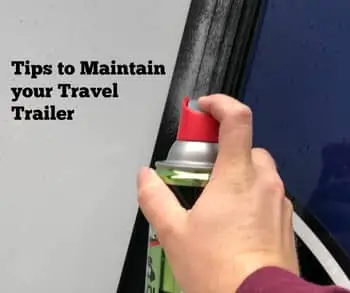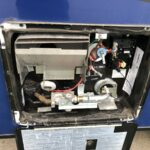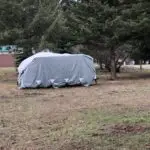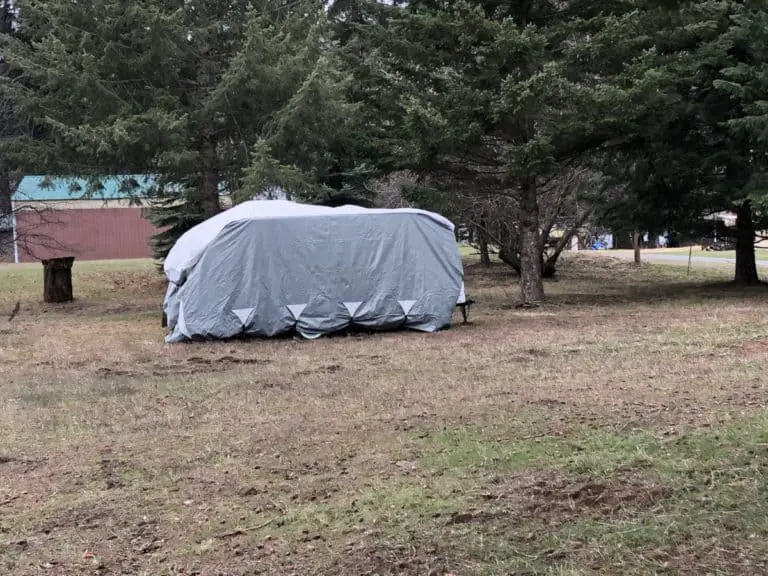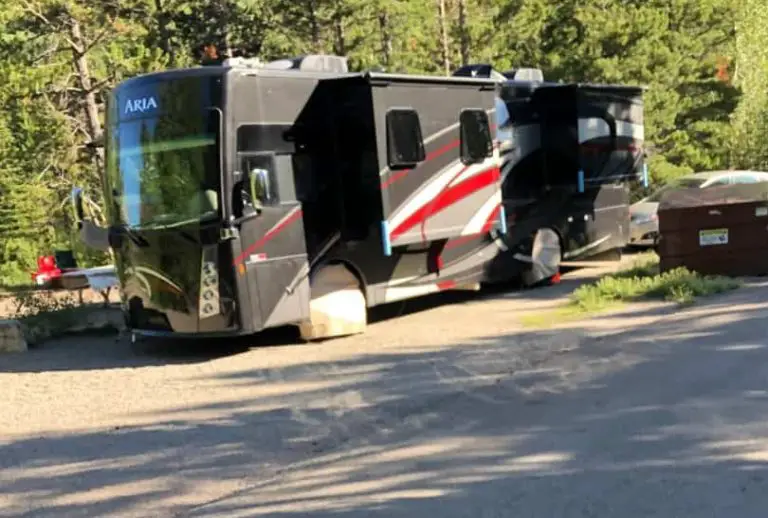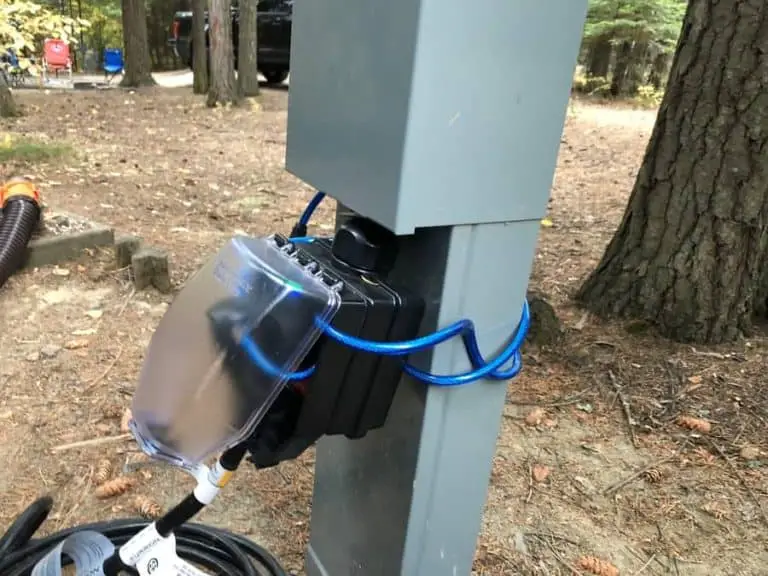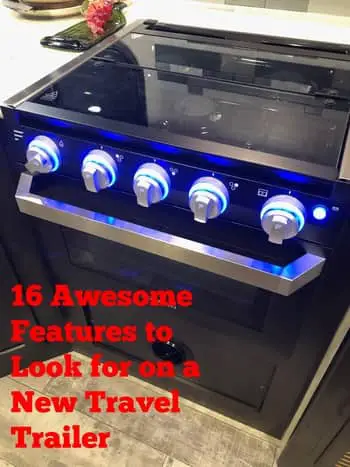22 Simple Tips to Easily Maintain your Travel Trailer
Why Should you Maintain your Travel Trailer?
Maintaining the possessions in your life should be important if you want to keep them working and in top condition for years to come. Your travel trailer deserves simple maintenance to keep it working to the best of its ability for your travels, safety, as well as when you pass it along to another buyer to give them the best camping experience they will have.
Slide Out Maintenance
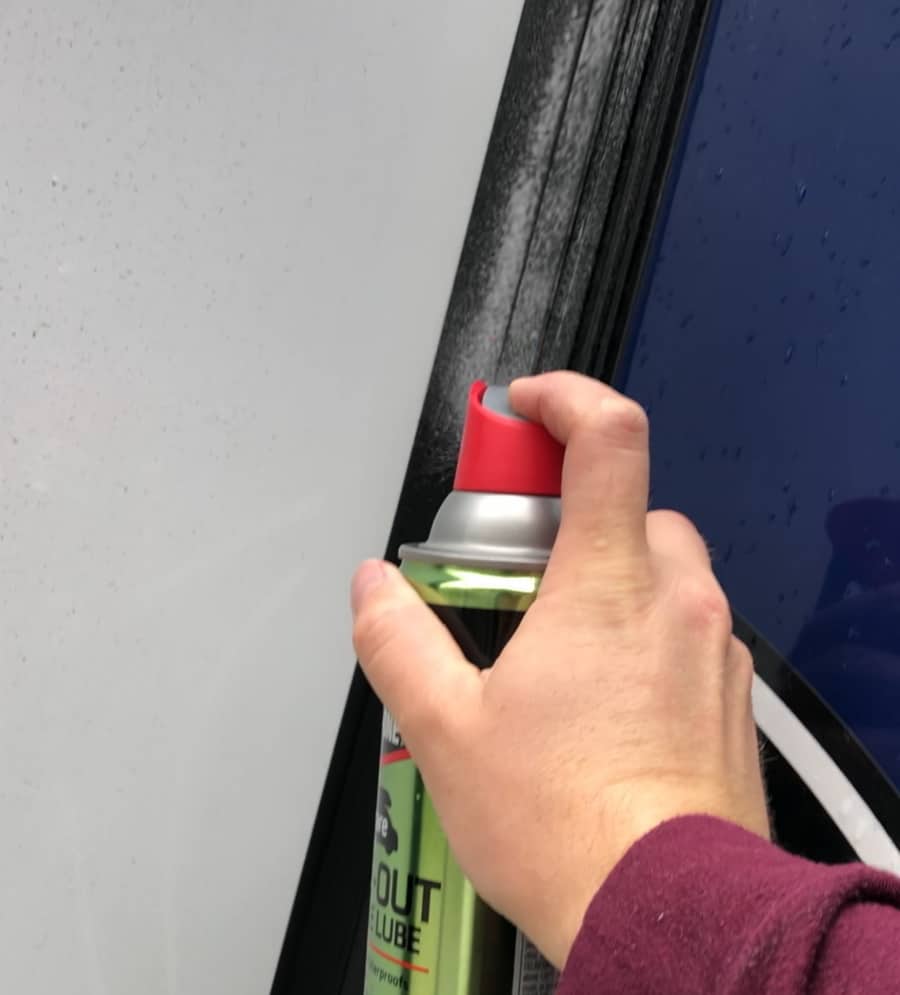
The slide outs on your RV will need to be maintained to function properly and to stop future leaks from developing. Make sure to keep all moving parts lubricated with a proper lubricant for slide outs. Along with lubricating the moving parts, gears, and rollers, you will want to lubricate the seals on your slide outs to keep them flexible and in good condition.
We use a premium rubber seal conditioner to keep our seals like new. It is also important to check all screws or rivets holding down your slide out seals, and to have someone operate the slide to make sure they are operating properly and coming in contact nicely.
Periodically, you will want to make sure your slide out is going in and out straight. Once it gets off its tracks, it can become very hard to get back on. Read your manual and become familiar with how your slide out works if you ever have to override it and it becomes off its tracks.
Axle Maintenance
The bearings on your travel trailer will need to be inspected and packed with grease periodically. Depending on what type you have, consult your manufacturer to find out what brand are on your trailer. Look up the brand that you have to find instructions of how to re grease the bearings specific to your trailer. Before you re grease the bearings on your trailer, make sure to use a compatible grease to what is originally used on the bearings to not cause damage.
Also, take and note the measurements from wheel center cap to centre cap to make sure your axles are tracking straight. This will keep wear of your tires minimal as well as tell you there is nothing structurally wrong with your travel trailer.
Travel Trailer Tire and Wheel Maintenance
Before every trip you take in your travel trailer, you should always check your tire pressure to make sure it is in range. It is also a good idea to get a tire pressure monitor to monitor tire pressure and temps remotely to prevent a blowout. A blow out can be very dangerous when on the road, so proper prevention is key. We also check our lug nuts torque before every trip when we leave. A loose lug nut can lead to others stripping out or even failure. Keeping a simple torque wrench and sockets which go to different items on your truck or trailer is handy to have in your tool kit. Make sure you have proper sockets to adjust your trailer hitch if needed. Read our article about tire maintenance here.
RV Body and Undercarriage Maintenance
Keep the body of your travel trailer maintained by checking all screws, nuts, and bolts for tightness. While checking for tightness, check for rust anywhere on the trailer and determine what is causing it. Some causes could be scrapes in undercarriage paint, to fix this you would want to sand down the rust spot to bare metal, then apply a paint and clear coat over with an undercarriage paint to match your trailer. Doing this will prevent further rusting of your travel trailer and keep it as good as new. Bare metal is a huge weakness on a travel trailer.
Roof Maintenance
The roof on your RV is one of the most important parts. A leaky roof can permanently damage your travel trailer walls, flooring, or insulation. If you get a rip in it from a low hanging branch, you will want to fix this immediately with roof tape or dicor sealant. We always keep a roll of tape handy just in case something happens.
Washing the roof in your RV with a soft bristle brush and a mild detergent will ensure it is clean and free of debris. We usually do this a few times a year. There is also a roof conditioner you can apply if you have a rubber membrane roof to condition it that will lengthen the life.
Hitch and Towing Maintenance
The hitch is one of the most important parts when you are towing your camper. It is the connection point between your vehicle and travel trailer. If something goes wrong here, you will have problems. If your hitch ball requires grease, make sure to grease the ball with the correct grease recommended by the hitch manufacturer. On our hitch, the Andersen No Sway, it does not require grease as the ball moves with the travel trailer. It is not recommended on our hitch to grease it. Always tow your travel trailer level, to find out why, read our article on how to level your travel trailer for towing.
Make sure your pin or hitch lock is in good condition and free of rust. Keep an eye to make sure it is not causing wear on the hitch mount. The nuts and bolts on your ball mount will need to be checked for correct torque and check this every time you tow your trailer. Read our top hitch guide to find out more information about weight distribution hitches.
RV Electrical Maintenance
Along with checking your trailer lights as already discussed, your electrical system will need to be periodically tested.
Check your battery terminals in your battery box to ensure they are free of corrosion. If your battery terminals are corroded, use a wire bristle brush to clean them off and reinstall. Make sure to only pull one terminal at a time so you do not get your wires mixed up. If your vehicle is equipped with a battery shut off switch, make sure it is in good condition and freely operating. If you have no power in your trailer, always check the outgoing terminals on your cut off switch to see if there is 12v power. If there is no power, you may have a bad switch.
The shore power system will also need to be periodically checked as well. We check this to make sure breakers are working and GFCI outlets are working. This requires a simple GFCI tester that will flip your GFCI breaker or switch on your GFCI outlet. If it flips, than it is protecting you.
Co2 and Smoke Alarm
Periodically hit the test button on both your smoke detector and co2 alarm, as well as check and replace batteries on them. A simple 9v battery is cheap insurance to make sure these items are fully working.
Interior cleaning
Keep your interior clean by using a soft bristle brush and mild detergent and water for all surfaces. Use all purpose cleaner to keep your counters, refrigerator, microwave, bathroom and other items cleaned. Keeping your trailer clean after every use will make one less thing to complete before you get ready for your next trip.
Exterior Cleaning
Periodically clean the exterior of your travel trailer with a soft bristle brush and mild detergent. We use an automotive detergent. As we have a fiberglass trailer, we wax ours in the same way one would wax an automobile. If you have a corrugated metal trailer, you can also keep it waxed and cleaned in the same way, it will just take a bit more time to get in and out of all the groves.
We have this extension brush to reach all heights of our trailer and a good bucket to dip it in. Make sure the bristles are soft enough as to not do damage to your sides, seals, or roofing.
Awning Maintenance
The awning is one thing that tends to be forgotten when it comes to maintenance as it is always tucked away. Make sure to roll it out and wash it just as you do the exterior of the trailer. Always wait for it to completely dry before retracting. Once a year, we condition our awning with a 303 cleaner and conditioner to keep it soft and waterproof. You will also need to maintain all moving parts on your awning. Use some silicone lubricant on the moving parts and slides to ensure a noise free and bind free operation.
RV Holding Tank Maintenance
If kept maintained, the holding tanks on your RV will be the least of your worries. Keep your water tank sanitized by adding bleach to your tank and using your water system. Find out more about the process on our article about fresh water tank maintenance.
The black tank should be rinsed out after each use with a black tank flush if installed or fill the tank about half up with water, throw a bag of ice in, then drive down the road. This will agitate solids which become stuck to the side of the tank and will allow them to be flushed. Also black tanks should have an additive added each use to ensure the waste is able to breakdown naturally.
The gray tank should also be filled and flushed periodically. There are also chemicals you can use to clean your gray tank if it develops any nasty smells. We drop a tab in about once a month when in use to keep it sparkling clean.
Travel Trailer Air Conditioner Maintenance
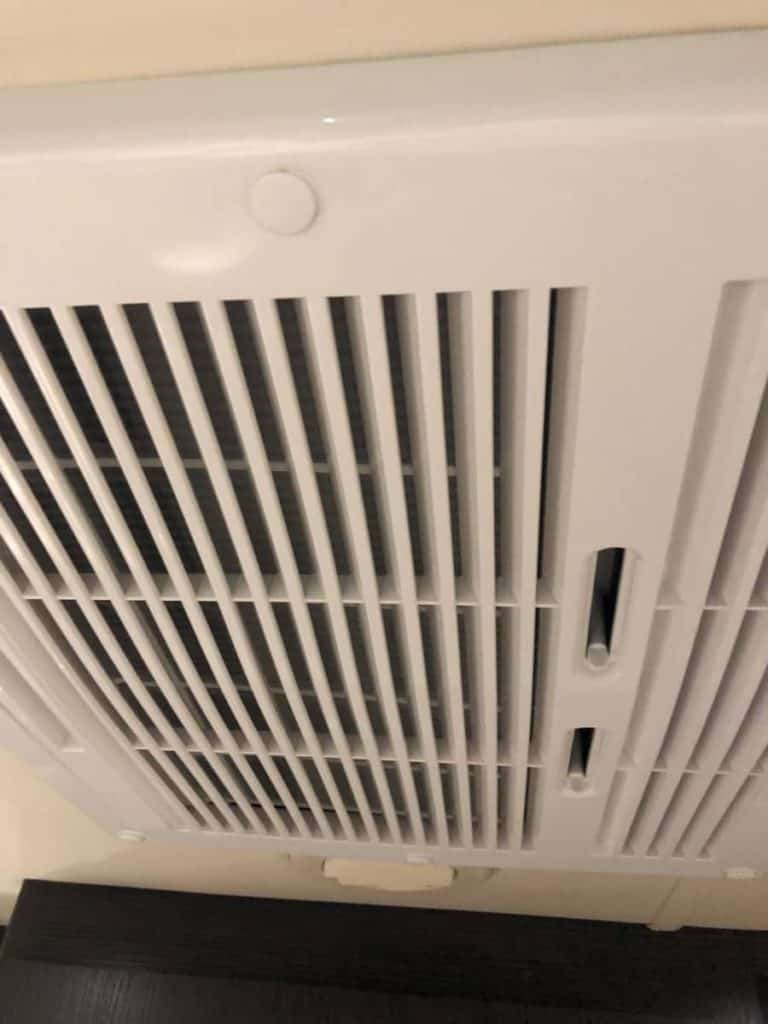
The air conditioner is something that is often overlooked. We also clean our pre filter which is located in our RV before we go out as it is simple and easily accessible. Once a year, we clean the fins on our condenser of excessive buildup which can cause the air conditioner to not be as efficient. The condenser fins can be located on the roof of the unit. You can use a specialized cleaner with a very soft brush and rinse them off. Doing this will keep your air conditioner blowing the coldest air possible.
RV Furnace Maintenance
The furnace on your RV typically takes little maintenance. Periodically you will need to inspect the exhaust vent for proper airflow. Insects, mice, and birds like to build nests in these vents. If there is a blockage in your exhaust vent, the heater can overheat and cause a fire. Fires are bad.
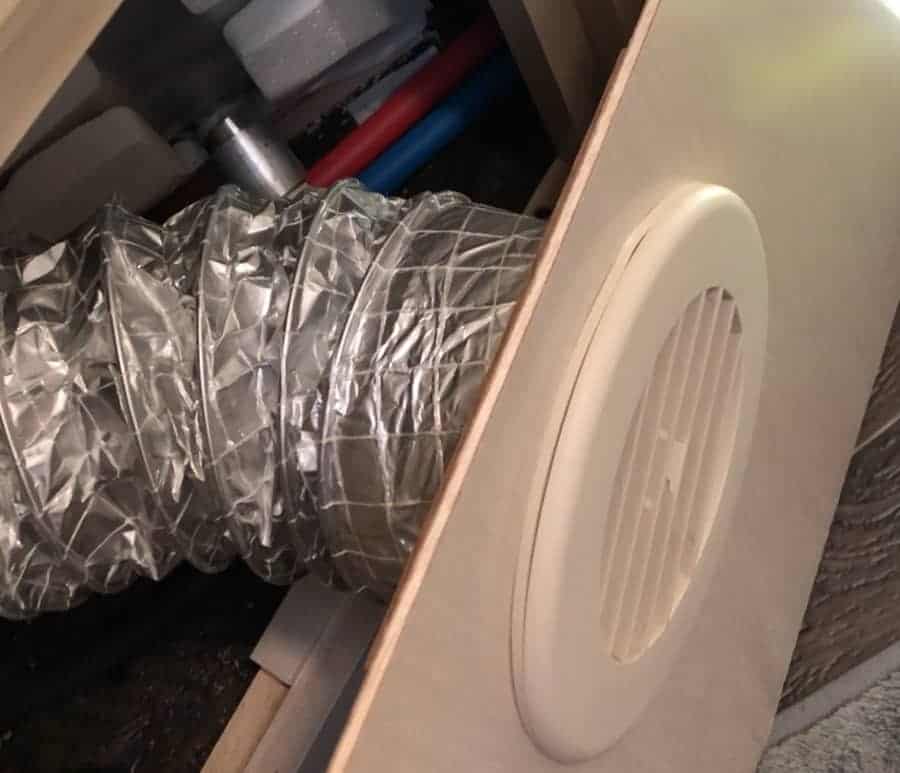
The ductwork and vents have a tenancy to become disconnected due to being jarred around when driving. Make sure these ducts are connected as well as the return ducts so that there is proper airflow. If you do not have proper airflow, this can cause your motor to run faster and overheat causing premature failure of your furnace.
Water Heater Maintenance
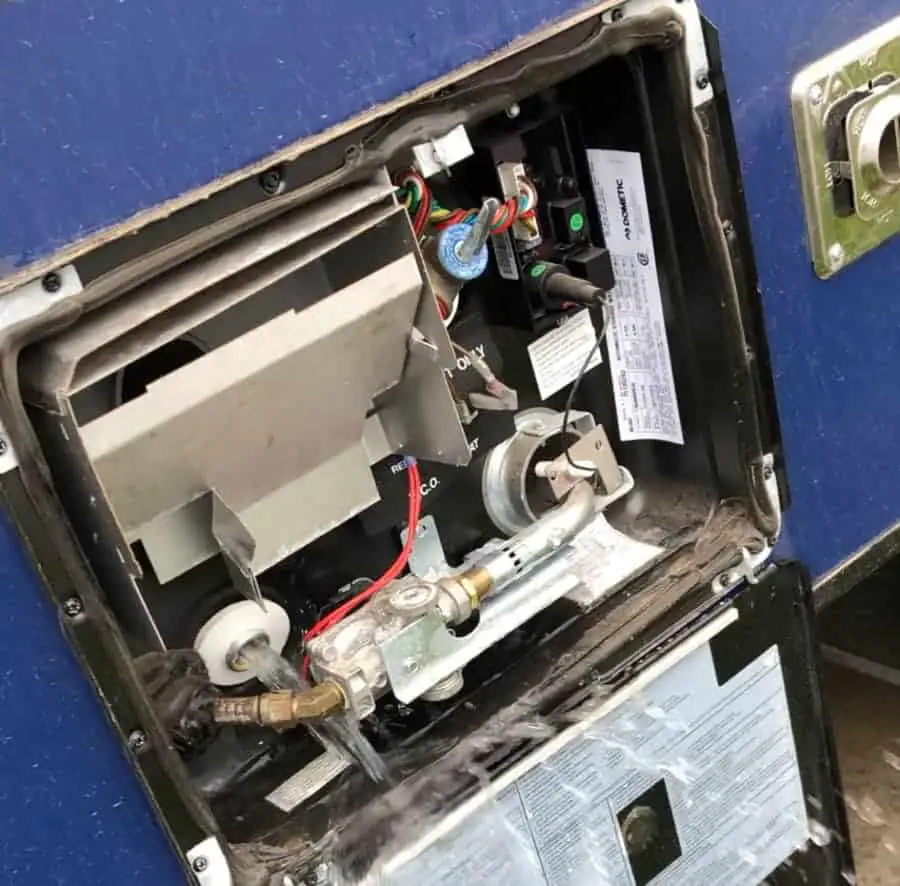
Every time you work on your water heater, remember that most are ran off of electricity as well as propane. Take precautions to turn off your propane gas as well as electricity to the water heater so you do not get electrocuted or your heater does not try and fire up. To do this, turn your propane off at the tank, flip the breaker in your fuse panel, and make sure your hot water tank power is shut off on the switch. Some heaters have an anode rod which is supposed to corrode so the tank does not. You can pull this out and inspect, if it is uncleanable then order a new one and install. If it looks good, reinstall the anode.
Flushing the water tank will go a long way with its longitivity. Empty your water tank, then use a wand to spray around in the tank or fill it up and empty it a few times. This will remove all the buildup and gunk from hard water at campsites.
If you have an electric heating element, remove it and inspect to make sure it is in good condition. If not, replace.
Check your propane burner for buildup and clean with a towel or sandpaper.
Inspect your heater to make sure there has been no water leaks or is no excessive soot buildup from the burner. If there is excessive build up, consult your dealer.
Break and Tail Lights
Before each trip, you should grab a partner and run through your break lights, turn signals, running lights, marker lights, hazzards, and any other exterior lights. This will ensure you get these bulbs replaced asap in case one goes out so you are not a hazard on the road.
Battery Maintenance
Make sure to check water levels monthly when you are using your RV or even more often if you are a full timer or are using and charging frequently. If water levels go low, this can damage your batteries permanently. Keep your batteries charged up so they are ready to go for each trip. Make sure not to discharge your batteries under 60% as this can permanently damage and lower the life of your batteries greatly.
If you live in the colder regions, remove your batteries from your RV over the winter and keep indoors on a piece of wood. Make sure to not directly store batteries on concrete as it is bad for them. Keep them on a battery maintainer or periodically charged over the winter months to keep them happy and working as long as they can. Read more on how long travel trailer batteries last.
Roof Vent Maintenance
The vents on the top of your RV in your bathroom as well as your living area if equipped will need to be checked for leaks. You can apply a seal conditioner to your seals on these vents to keep them supple and water free. While at it, apply some lubricant to your gears that open and close the vent.
Travel Trailer Breaks
The breaks on your travel trailer will need to be checked and adjusted periodically. Consult your owners manual to learn how to service your brakes. If you have questions, have your local dealer complete this service to give you piece of mind.
Travel Trailer Towing Electrical Connection
The 7 way connector will need to be checked as well to ensure all the wires are getting a good connection and there are no breaks in the wire. Make sure there is no nicks or kinks in this wire, or rust or items stuck in your connector. Always store facing down so rain does not build up and cause the rusting of your wire terminals
Inspect Propane Gas Lines
The propane lines will need to be checked for leaks periodically. To do this, make a soapy water solution in a spray bottle. Spray on all fittings, wait to see if there are any bubbles that come up. If no bubbles appear, then you should be fine. If some appear than you have a leak. This is also a good leak finder if you in fact do smell propane.
If you have a leak, shut off all propane, do not use any gas appliances, and fix immediately.
These are just some quick tips to keep an eye on to keep your travel trailer in good working condition. There are many items to maintain depending on your make and model and what accessories you have installed. If you keep these items up you should be a happy camper for years to come.
Be the first to be notified about FREE tips, hints, coupon codes, and email-exclusive information. All for FREE!

